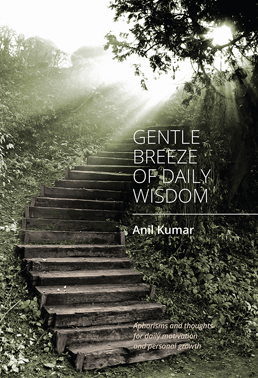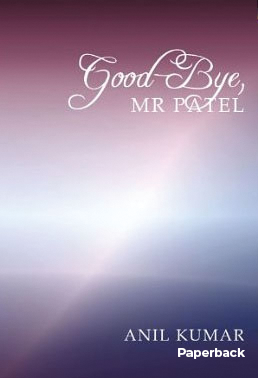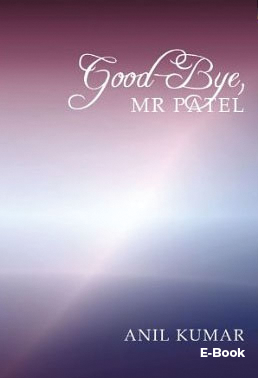Published Work
THE ATTRIBUTES OF A VIRTUOUS MINDSET
A mind that remains adaptable and open to change is poised for evolution. delving into the 13 Virtues extolled in ‘The Attributes of a Virtuous Mindset’ initiates a transformative journey across the phases of Being, Doing, and Becoming.
Initially, embracing the virtues in the Being phase enables you to realize your interconnectedness with the universe and propel your mind on an evolutionary path.
As you progress into the phase of Doing, you actively integrate and reflect these virtues into your daily life. Your mindset becomes a guiding force, shaping how you perceive the world and powering your responses to life’s challenges and opportunities. With each conscious act aligned with the virtues, you inch closer to self-mastery and a deeper understanding of your purpose.
Gentle Breeze of Daily Wisdom
This book will remind you that we are spirit beings masquerading as humans.The author believes that the modern man is so caught up in making a living that he has no time to truly and deeply think about life - where he's come from and where he's heading. His shallow living with murky intentions, self-centeredness, and compulsion to perpetually engage in social networking, so as not to feel isolated, leave no time or energy for him to think at a deeper level. The result is frustration, confusion, and inner conflict. And what is inside is experienced outside. There is clearly a need to genuinely create the feeling of being connected with fellow humans from a level where we all come together.In this compendium of pithy statements and aphorisms, the author has encapsulated thought-provoking and motivational wisdom to take the reader's mind from thinking too many thoughts at one time to focusing the mind each day on the bigger questions about the true self, the spirit within and purposeful life to promote inner growth and peace.
GOOD-BYE, MR PATEL II – THE SEQUEL: E-BOOK
Anil Kumar has responded to the request of several readers of 'Good Bye, Mr Patel' by writing this sequel that documents his introspective journey. The story is fragmentary, but Anil shares his experiences of learning to take charge of his life by applying his mind. He believes that every high and low point in his life has been immensely transformational when he reflects on them objectively. According to Anil, a clear perception of life can be achieved when we stop seeing faults in others and refrain from searching for right and wrong in them. Instead, he suggests that faults, if any, are merely flaws in the way we perceive things. Clear perception is the solution to healing warped thinking, which is the cause of many of our conflicts, problems, and difficulties today. Anil believes that we need to find time to be still, reflect on our values, thoughts, and emotions, and experience how the mind, where beliefs reside, can be harnessed to find solutions to most of our modern-day problems. In this sequel, he shares with the reader his painful experiences and the powerful lessons learned that have made him mentally and spiritually stronger and wiser.
GOOD-BYE, MR PATEL II – THE SEQUEL
Anil Kumar has responded to the request of several readers of 'Good Bye, Mr Patel' by writing this sequel that documents his introspective journey. The story is fragmentary, but Anil shares his experiences of learning to take charge of his life by applying his mind. He believes that every high and low point in his life has been immensely transformational when he reflects on them objectively. According to Anil, a clear perception of life can be achieved when we stop seeing faults in others and refrain from searching for right and wrong in them. Instead, he suggests that faults, if any, are merely flaws in the way we perceive things. Clear perception is the solution to healing warped thinking, which is the cause of many of our conflicts, problems, and difficulties today. Anil believes that we need to find time to be still, reflect on our values, thoughts, and emotions, and experience how the mind, where beliefs reside, can be harnessed to find solutions to most of our modern-day problems. In this sequel, he shares with the reader his painful experiences and the powerful lessons learned that have made him mentally and spiritually stronger and wiser.
GOOD-BYE, MR PATEL – E-BOOK
Good-Bye, Mr Patel is a Ugandan born Indian's story of self discovery and quest for flawless vision. The author believes the modern day malaise and strife are caused by the increasing spiritual void in us and warped thinking that has put man on a proverbial treadmill of unprincipled living and search for elusive happiness somewhere outside in a material world. He says 'when we clear our minds of the clutter of useless baggage, worthless information and second-hand knowledge stored to bolster our ego that is allowed to weigh upon us for no discernible reason other than to gain a sense of ascendancy over others and to justify our otherwise meaningless existence, then clear spiritual highways to blissful reality open up'. Bitter experiences of early life of poverty and belonging to the Patel clan forced the author to look at himself. He could not accept that he was any different from a non-Patel and realized how deeply scripted he was by the social environment in which he grew up. He craved freedom from the shackles of his social and psychological order. He chose to move away from calling himself a Patel to look at himself objectively. This introspective journey gave him the strength to break with his past, dismantle the shackles of impractical and unquestioned customs, traditions and beliefs to pave the way for an open mind to flourish. This fragmentary autobiography reveals how positive interpretations of his bitter experiences have shaped the transformation of his thinking and life and taken him to living in a state of abandonment - a life free of stress and anxiety. The title "Good-Bye, Mr Patel" suggests that there is a Patel lurking inside each one of us who needs to be banished. This is the ego that blinds and imprisons us in an illusory world that diverts the mind from venturing into world within where the real person resides. The book finishes with the author's barrier-shattering, and enlightening, principle
GOOD-BYE, MR PATEL – PAPERBACK
Good-Bye, Mr Patel is a Ugandan born Indian's story of self discovery and quest for flawless vision. The author believes the modern day malaise and strife are caused by the increasing spiritual void in us and warped thinking that has put man on a proverbial treadmill of unprincipled living and search for elusive happiness somewhere outside in a material world. He says 'when we clear our minds of the clutter of useless baggage, worthless information and second-hand knowledge stored to bolster our ego that is allowed to weigh upon us for no discernible reason other than to gain a sense of ascendancy over others and to justify our otherwise meaningless existence, then clear spiritual highways to blissful reality open up'. Bitter experiences of early life of poverty and belonging to the Patel clan forced the author to look at himself. He could not accept that he was any different from a non-Patel and realized how deeply scripted he was by the social environment in which he grew up. He craved freedom from the shackles of his social and psychological order. He chose to move away from calling himself a Patel to look at himself objectively. This introspective journey gave him the strength to break with his past, dismantle the shackles of impractical and unquestioned customs, traditions and beliefs to pave the way for an open mind to flourish. This fragmentary autobiography reveals how positive interpretations of his bitter experiences have shaped the transformation of his thinking and life and taken him to living in a state of abandonment - a life free of stress and anxiety. The title "Good-Bye, Mr Patel" suggests that there is a Patel lurking inside each one of us who needs to be banished. This is the ego that blinds and imprisons us in an illusory world that diverts the mind from venturing into world within where the real person resides. The book finishes with the author's barrier-shattering, and enlightening, principle
ANIL KUMAR
At a very young age Anil Kumar sensed conflict, physical, social and psychological, both inside and around him, and discovered a secret ally which he calls Nature that has always given him the strength to withstand adversity and courage to examine his motives and opened pathways to solutions to supposedly insurmountable problems of daily living. He strived and has to an extent succeeded in freeing himself from the grips of ego-driven warped thinking and the shackles of social conditioning, all of which he says was a prerequisite for him to connect to the vast amount of potential locked inside him.






